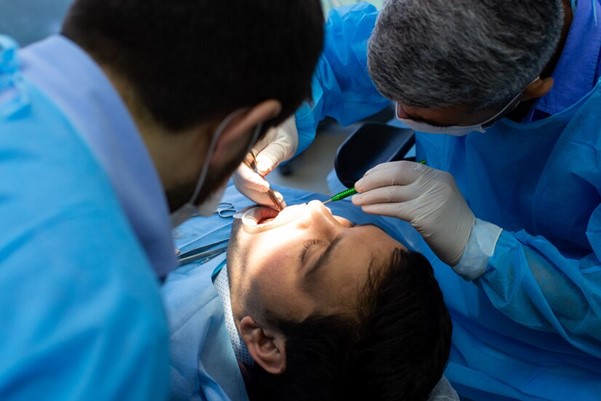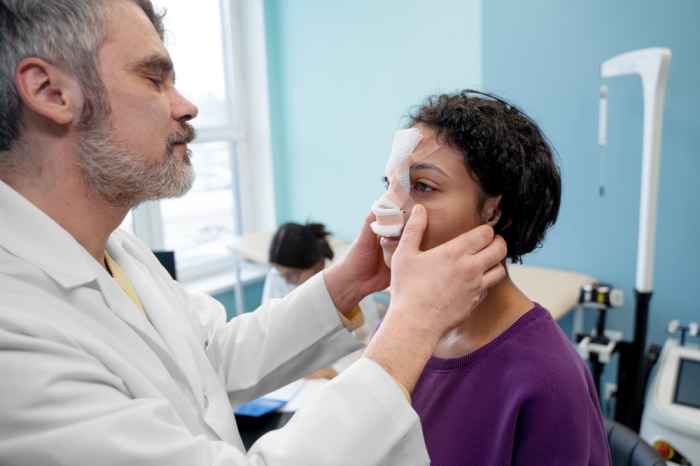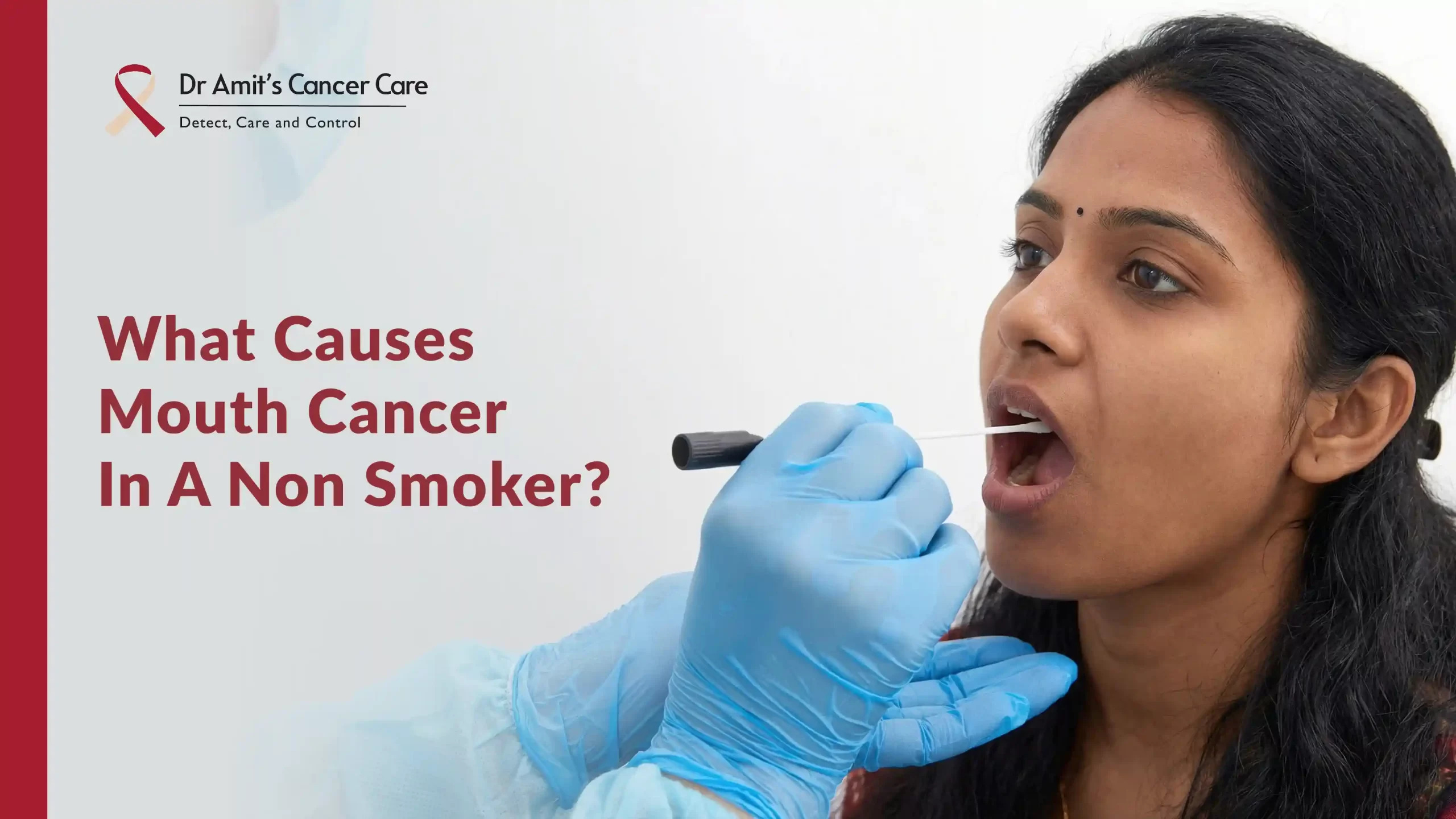Oral cancer, affecting areas like the mouth, tongue, lips, and gums, requires specialized treatment approaches tailored to each case. Surgical procedures are central to oral cancer treatment, with techniques evolving to maximize the removal of cancerous tissue while preserving critical functions. This guide delves into the various surgical options available, shedding light on what each entails and the factors influencing treatment choices.
For those seeking specialized expertise, Dr. Amit Chakraborty, a leading oncologist specialist in Dubai, Mumbai, and Nagpur, offers advanced oral cancer treatment, guiding patients through complex surgical procedures with a patient-centered approach.
1. Primary Tumor Resection: Removing the Cancer at Its Source
Primary tumor resection is the first step for many oral cancer patients. The goal is to remove the cancerous mass along with a margin of healthy tissue, reducing the risk of recurrence. This procedure varies depending on the location and spread of the tumor.
– Partial Glossectomy: For cancer on the tongue, a partial glossectomy involves removing a section of the tongue. While this can impact speech and swallowing, careful planning minimizes functional disruption.
– Mandibulectomy: If cancer extends into the jawbone, a mandibulectomy may be required to remove part or all of the affected bone. Advanced techniques can help preserve as much of the jaw as possible.
A highly skilled oral surgeon, like Dr. Chakraborty, customizes each tumor resection based on the tumor’s location and depth, aiming to achieve clear margins while maintaining oral functions.
2. Neck Dissection: Preventing the Spread of Cancer
Cancer in the mouth often spreads to nearby lymph nodes in the neck, making neck dissection a crucial part of treatment. This procedure involves removing lymph nodes to contain the spread. There are different levels of neck dissection, depending on cancer’s progression and spread.
– Selective Neck Dissection: This technique targets specific lymph nodes with minimal removal, typically used for early-stage cancers.
– Modified Radical Neck Dissection: This more extensive surgery removes additional lymph nodes and possibly nearby tissues, preserving some structures to limit side effects.
– Radical Neck Dissection: The most comprehensive approach, removing all lymph nodes in the affected area. It’s reserved for advanced cancers where extensive spread is confirmed.
Neck dissection is vital in reducing the risk of cancer recurrence, and consulting with a specialist like Dr. Amit Chakraborty, an oncologist expert in Dubai, Mumbai, and Nagpur, is key to understanding the procedure’s benefits and risks.
3. Reconstructive Surgery: Restoring Form and Function
Following the removal of extensive tissue, reconstructive surgery helps restore the natural appearance and functional aspects of the mouth and face. These surgeries are essential for patients’ quality of life, addressing cosmetic concerns and supporting normal speech, chewing, and breathing.
– Free Flap Reconstruction: Tissue from other parts of the body (e.g., the thigh or arm) is transferred to the affected area. Known as a “free flap,” this tissue rebuilds areas where large amounts of tissue were removed.
– Bone Grafting: If a part of the jaw is removed, bone grafting can help restore structure. The graft, often taken from the hip, enables improved facial structure and function.
– Dental Implants: Some patients require dental implants after jaw surgery, which restore chewing ability and the natural appearance of teeth.
Dr. Amit Chakraborty collaborates with reconstructive surgeons to integrate aesthetic and functional goals into the overall treatment plan, ensuring that patients regain both form and function.
4. Mohs Surgery: Precision Removal for Small Tumors
For superficial oral cancers, Mohs surgery may be recommended. This specialized technique involves removing thin layers of tissue one at a time, examining each under a microscope to ensure clear margins. Mohs surgery is most effective for cancers located on or near the lips and other surface areas of the mouth.
This technique is highly effective in early-stage cancers with defined borders, allowing patients to retain as much healthy tissue as possible. It’s an ideal option for patients who prioritize both functionality and appearance. Dr. Chakraborty, an oncologist and oral surgeon in Dubai, Mumbai, and Nagpur, can help patients assess whether Mohs surgery is right for them.
5. Laser Surgery: A Minimally Invasive Approach for Early Cancer
Laser surgery is an effective option for early-stage oral cancers, particularly those affecting the surface of the tongue or lining of the mouth. Using high-energy lasers, surgeons can vaporize or cut away cancerous tissue with remarkable precision, resulting in minimal bleeding and shorter recovery times.
While laser surgery is not suitable for advanced cancers, it is highly effective for localized tumors. Patients undergoing laser surgery often benefit from fewer side effects and quicker recovery, making it an appealing option for early-stage cases. Dr. Amit Chakraborty offers consultations to help patients understand whether laser surgery aligns with their cancer type and treatment goals.
6. Maxillectomy and Palatectomy: Treating Tumors in the Upper Mouth
When cancer affects the upper parts of the mouth, including the roof (hard palate) and upper jaw, specialized surgeries like maxillectomy and palatectomy may be required.
– Maxillectomy: This procedure removes part of the upper jawbone, often with prosthetic reconstruction. Patients may use a custom obturator to fill the space, aiding in functions like speech and eating.
– Palatectomy: Removing part of the hard palate may be necessary when cancer invades this area. A prosthetic device can be fitted to close any gaps, helping patients with essential functions post-surgery.
These surgeries can impact daily functions, but careful planning with an oncologist specialist, like Dr. Amit Chakraborty, helps ease the transition by offering comprehensive support before and after surgery.
Preparing for Surgery and Recovery
Undergoing surgery for oral cancer requires physical and emotional preparation. Patients should consult with a multi-disciplinary team, including oncologists, nutritionists, and speech therapists, to ensure holistic support. Postoperative care focuses on healing, nutrition, pain management, and restoring vital functions.
Avoiding smoking, alcohol, and other irritants is crucial for recovery and reducing the risk of recurrence. Dr. Amit Chakraborty emphasizes a holistic approach to postoperative care, collaborating with rehabilitation specialists to help patients regain quality of life.
Final Thoughts: The Path to Recovery and Hope
Surgery for oral cancer is a journey, one that offers hope for recovery and a return to daily life. With a variety of surgical options, from primary tumor resection to complex reconstructive procedures, patients can find treatments suited to their unique cases. Consulting with an experienced oral surgeon and oncologist, like Dr. Amit Chakraborty, ensures that patients have access to advanced care in Dubai, Mumbai, and Nagpur.
Choosing the right surgical option and planning for recovery can make a profound difference in a patient’s journey. With compassionate care, personalized plans, and support from a dedicated oncologist, those facing oral cancer can navigate their treatment with confidence and optimism.






